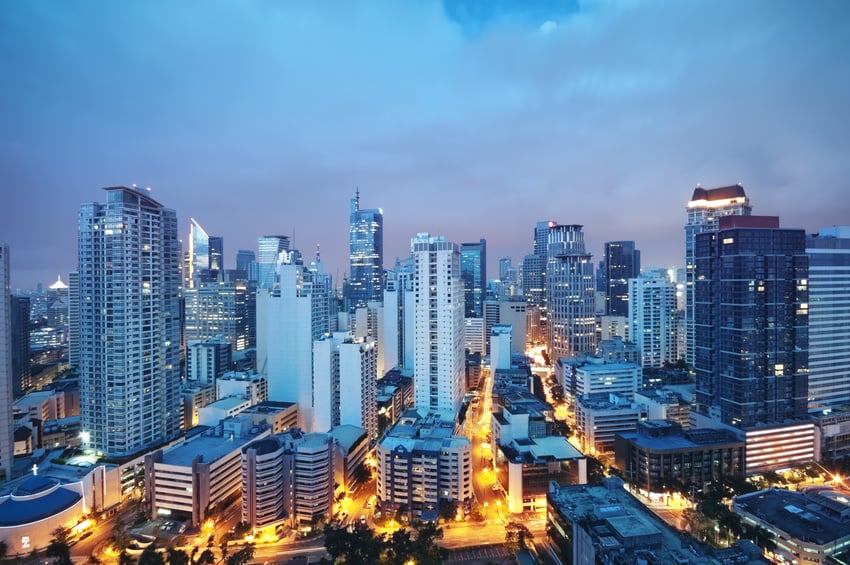It has been more than a week since Philippine President Rodrigo Duterte issued Proclamation No. 929 which: (a) declared the whole Philippines under a State of Calamity for a period of six (6) months from 16 March 2020; and (b) imposed an Enhanced Community Quarantine (ECQ) throughout the island of Luzon (which includes Metro Manila) from 12:00 a.m. of 17 March 2020 to 12:00 a.m. of 13 April 2020, both effective unless earlier lifted or extended as the circumstances may warrant.
The details and guidelines of the Enhanced Community Quarantine are contained in the issuances of several government agencies, including:
- Office of the President;
- Department of Agriculture;
- Department of Foreign Affairs;
- Department of Health;
- Department of Interior and Local Government;
- Department of Justice;
- Department of Labor and Employment;
- Department of Trade and Industry;
- Department of Transportation;
- Bureau of Customs;
- Bureau of Immigration;
- Bureau of Internal Revenue;
- Civil Aeronautical Board;
- Civil Aviation Authority of the Philippines;
- Construction Industry Authority of the Philippines;
- Insurance Commission;
- Intellectual Property Office;
- National Privacy Commission;
- Philippine National Police;
- Philippine Ports Authority;
- Securities and Exchange Commission; and
- The Supreme Court of the Philippines.
New directives / regulations are issued almost on a daily basis. As of 24 March 2020, the general guidelines for the ECQ in Luzon based on the issuances of the different government agencies are as follows:
1. Government offices
Government offices remain open but are either operating with skeletal workforces and/or under work from home arrangements. However, some government agencies have suspended certain transactions / filings.
Bureau of Customs
- Extended the accreditation of stakeholders who were unable to process their renewal papers due to the imposed quarantine.
Bureau of Immigration
- Suspension of transactions in Luzon, including the filing and hearing of applications for extension or conversion to non-immigrant or immigrant visa, dual citizenship, downgrading of visa status, special work permit, or provisional work permit, renewal of ACR I-cards, and implementation of approved visa applications for extension or conversion.
Bureau of Internal Revenue
- The filing and payment of 2019 Annual Income Tax Returns is extended from 15 April 2020 to 15 May 2020, without the imposition of penalties to taxpayers. However, those ready to file on the original deadline are encouraged to do so to help fund Covid-19 government efforts.
Department of Justice
- All prosecution offices are physically closed, but staff will be on call.
Intellectual Property Office
- Work in IPOPHL is suspended from 16 March 2020 to 14 April 2020. However, a work from arrangement shall be adopted by the office for continued delivery of services.
- All scheduled hearings before the IPOPHL, including mediations, are suspended.
- Deadline of all papers, pleadings, documents and payment falling due during the stated period are deemed extended for a period of thirty calendar days from the due date.
- New applications for patents, utility models, industrial designs, and trademarks for the period of 16 March 2020 to 14 April 2020 may be filed online through the IPOPHL but processing the same shall commence upon resumption of work.
National Privacy Commission
- All settings for discovery conferences, summary hearings, and mediation proceedings before the Complaints and Investigation Division and Legal Division are cancelled until further notice.
2. Supreme Court / Judiciary
- All hearings nationwide, except for urgent matters, are suspended from 16 March 2020 to 15 April 2020.
- The filing of petitions and appeals, complaints, motions, pleadings, and other court submissions that fall due during the said period is extended for thirty calendar days counted from 16 April 2020.
- Urgent matters include petitions, motions, and pleadings in relation to bail and habeas corpus, promulgation of judgments of acquittals, reliefs for those who may be arrested and detained during the ECQ, and other related actions that may be filed in relation to measures imposed at the local or national levels to address the declared health emergency.
- All courts nationwide shall be physically closed. Litigants, lawyers, prosecutors, and the general public are hereby advised to first contact the proper court through its hotline, email address, or Facebook account, where it shall be determined if the matter raised is urgent. If urgent, the judge/justice and skeletal court stall shall receive and act on such matter.
3. Movement of People
- Mandatory home quarantine for everyone covered by the ECQ except certain individuals (employees of establishments allowed to operate, law enforcement and certain public officials, health workers and media) and except for the purpose accessing basic necessities.
- Operation of mass public land transportation is suspended.
- All arriving Filipino passengers, including their spouse and children (whether Filipino or foreign), shall be allowed entry subject to quarantine procedures.
- Entry of foreign national are restricted effective 22 March 2020. Visa-free privileges of foreign nationals are temporarily suspended. All issuance for entry visas for visa-required foreign nationals are suspended while all previously issued visas are cancelled, except those issued to (a) foreign government and international organization officials accredited to the Philippines and (b) foreign spouse and children of foreign nationals. However, this is constantly changing and DFA will be updating the advisories accordingly.
- Land, air, and sea travel of uniformed personnel for official business, especially those transporting medical supplies, laboratory specimens, related to COVID-19, and other humanitarian assistance shall be allowed.
4. Movement of Cargo
- Movement of all cargoes within, to, and from the entire Luzon shall be unhampered. If subjected to random inspection, the movement of cargoes shall not be delayed upon presentation of the cargo manifest or delivery receipt indicating the destination, nature, and quantity of the loaded goods/cargo.
- Ports shall continue to be open to cargo ships provided there will be no embarkation /disembarkation of crew. The following rules apply to trucks carrying cargo from a Luzon port:
- Trucks carrying cargo from one port to another in Luzon which does not require traversing a body of water shall be allowed continuous access to and from said port.
- Trucks containing cargo which require traversing a body of water shall be required to either:
- unload the cargo in the next port of call and transfer the same to another truck or vehicle; or
- engage a different driver and a maximum of two helpers for the continued voyage of the trucks and cargo to its final destination.
5. Business Establishments
- Business establishments are closed except certain businesses, such as: (a) which provide basic utilities and critical services (e.g., water, electricity, internet, telecommunication, gas, garbage collection, funeral services); (b) involved in the production, processing and distribution of basic necessities (e.g., food, pharmacies / drugstores, banks); (c) capital markets (Philippine Stock Exchange will observe shortened trading hours).
- Business establishments that are allowed to operate during the ECQ are required to obtain an official IATF ID from the Department of Trade and Industry (DTI). The DTI has extended the filing of application and issuance for IATF ID to 26 March 2020. In the meantime, employees of such business establishments may continue to pass through control points upon presentation of any of the following: (a) valid company ID; (b) proof of residence; or (c) certificate of employment.
- Business Process Outsourcing (BPO) and export oriented establishments shall be allowed to operate provided that employees are:
- given temporary housing / shelter or shuttle services by the employer during the effectivity of the ECQ; or
- under work from home arrangements.
Additional Guidelines
Department of Health
- All physicians are authorized to issue electronic prescriptions via email or any other alternative modes considered as an electronic document under the E-Commerce Act of 2000. The electronic prescription shall be deemed an equivalent of a written prescription and shall only be valid for one week after its issuance.
- As a general rule, single dispensing of medicines must be in accordance with the prescription issued and should not exceed one month supply. However, during the community quarantine, the one-month rule is extended to a maximum of three months except for antibiotics and controlled drugs to which the general rule still applies.
Department of Interior and Local Government
- All LGUs are charged with the promotion of health and safety within their jurisdiction. LGUs are strictly enjoined to use the various issuances of the National Government as guidelines and may not overextend its implementation nor leave out its explicit provisions.
Department of Labor and Employment
- The private sector is encouraged to allow work from home arrangements. If an employee fails to work, then no pay is to be made, unless there are existing leave credits which an employee may avail. If an employee works, no additional pay is to be made.
- Establishments are encouraged to extend financial assistance to their employees during the effectivity of the ECQ in order for employees to access basic necessities. It is also suggested that 13th month and 14th months pays are to be released early.
- A Covid Adjustment Measures Program shall be implemented, which include financial assistance and employment facilitation to affected workers.
Department of Trade and Industry
- Retailers are enjoined to sell products in quantities sufficient to meet a household’s needs for a maximum of seven days only. However, on specific items, such canned goods, milk, disinfectant alcohol, and other essential food and non-food items, specific quantity limits are set.
Conclusion
There is a possibility that the period of enhanced community quarantine may be shortened or extended at the discretion of the President. Further, regulatory bodies may later on issue additional guidelines or revoke/modify guidelines already issued. Therefore, it is best to continue to keep abreast of the latest issuances and developments related to this matter.



